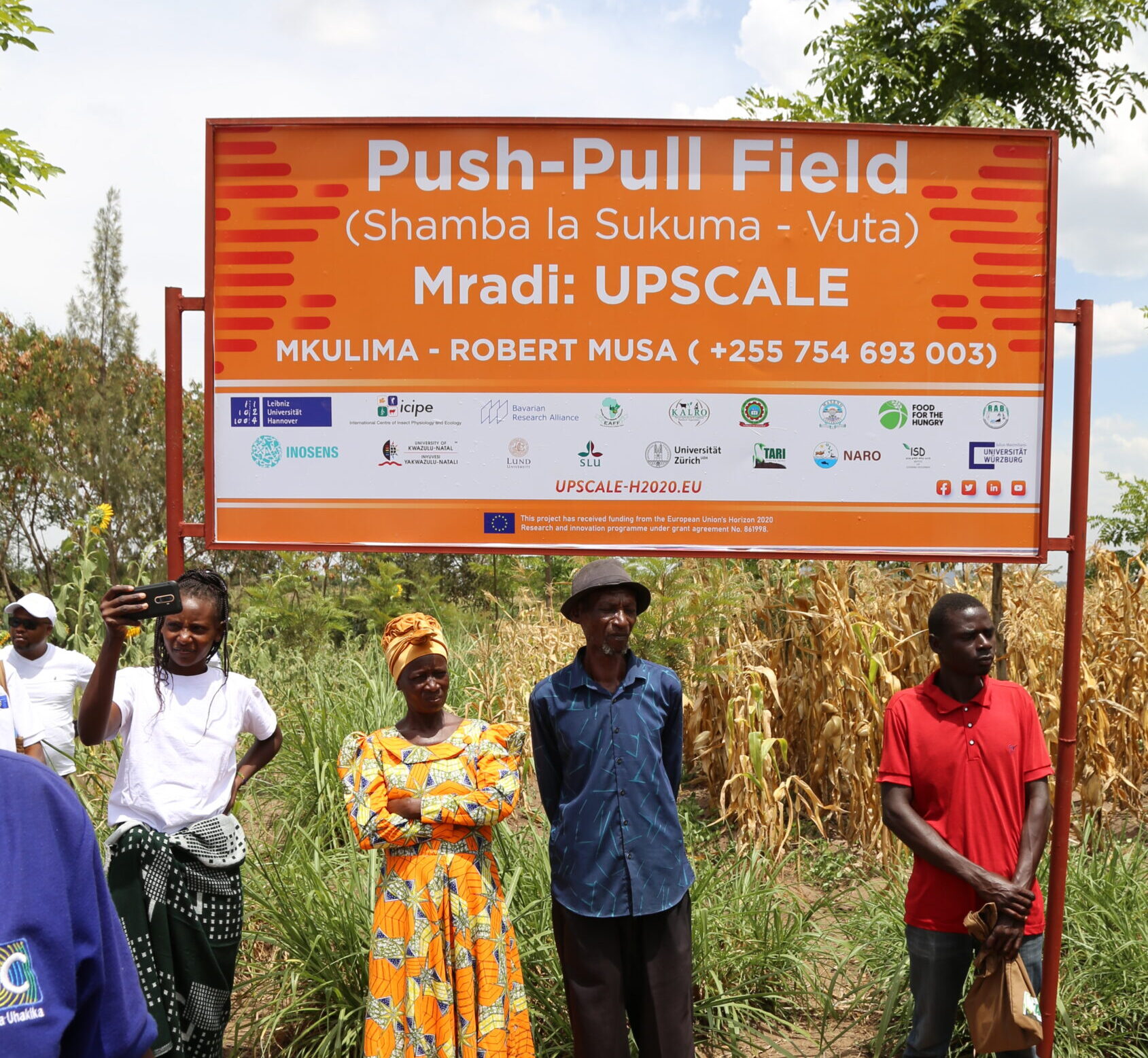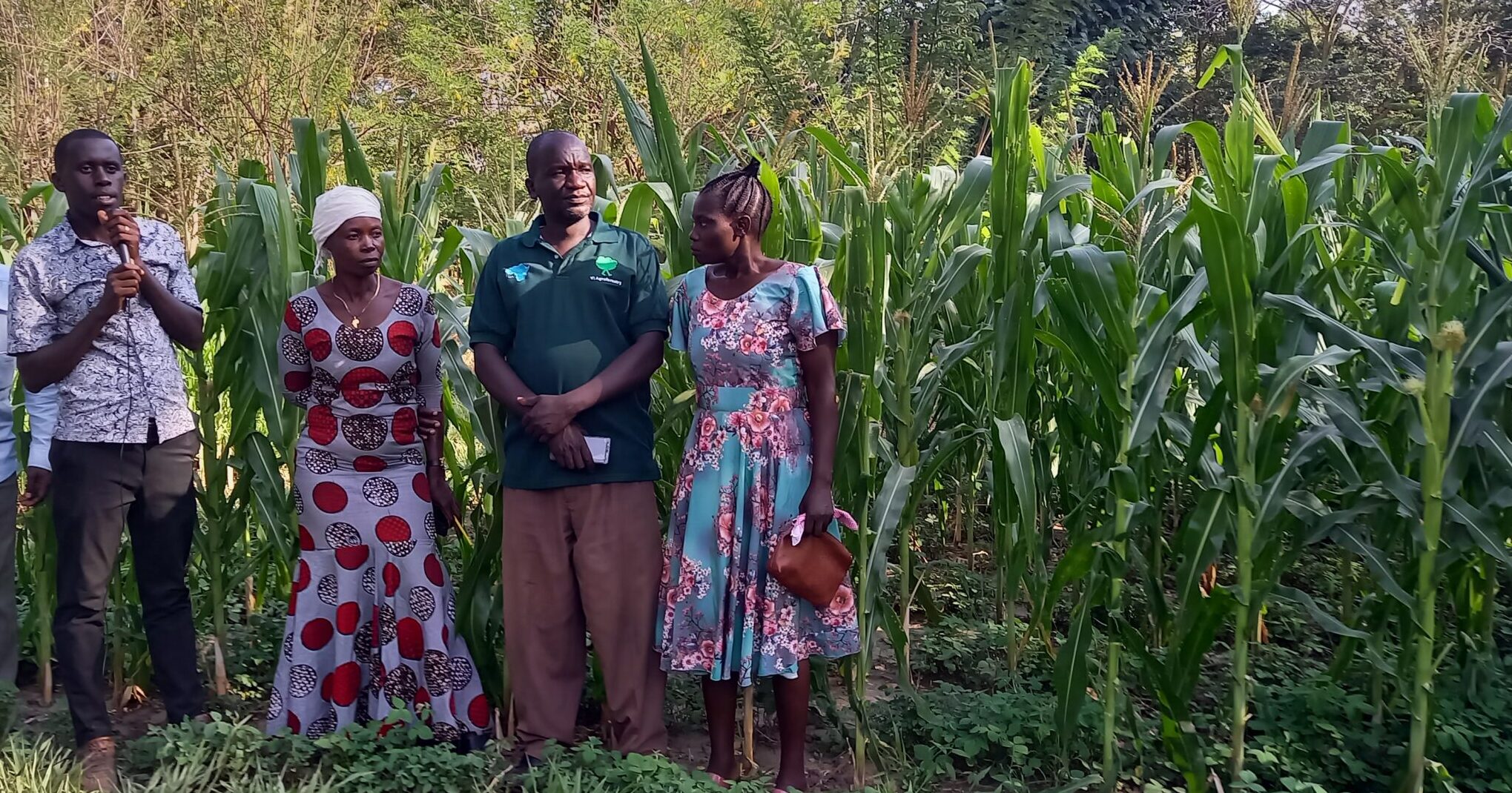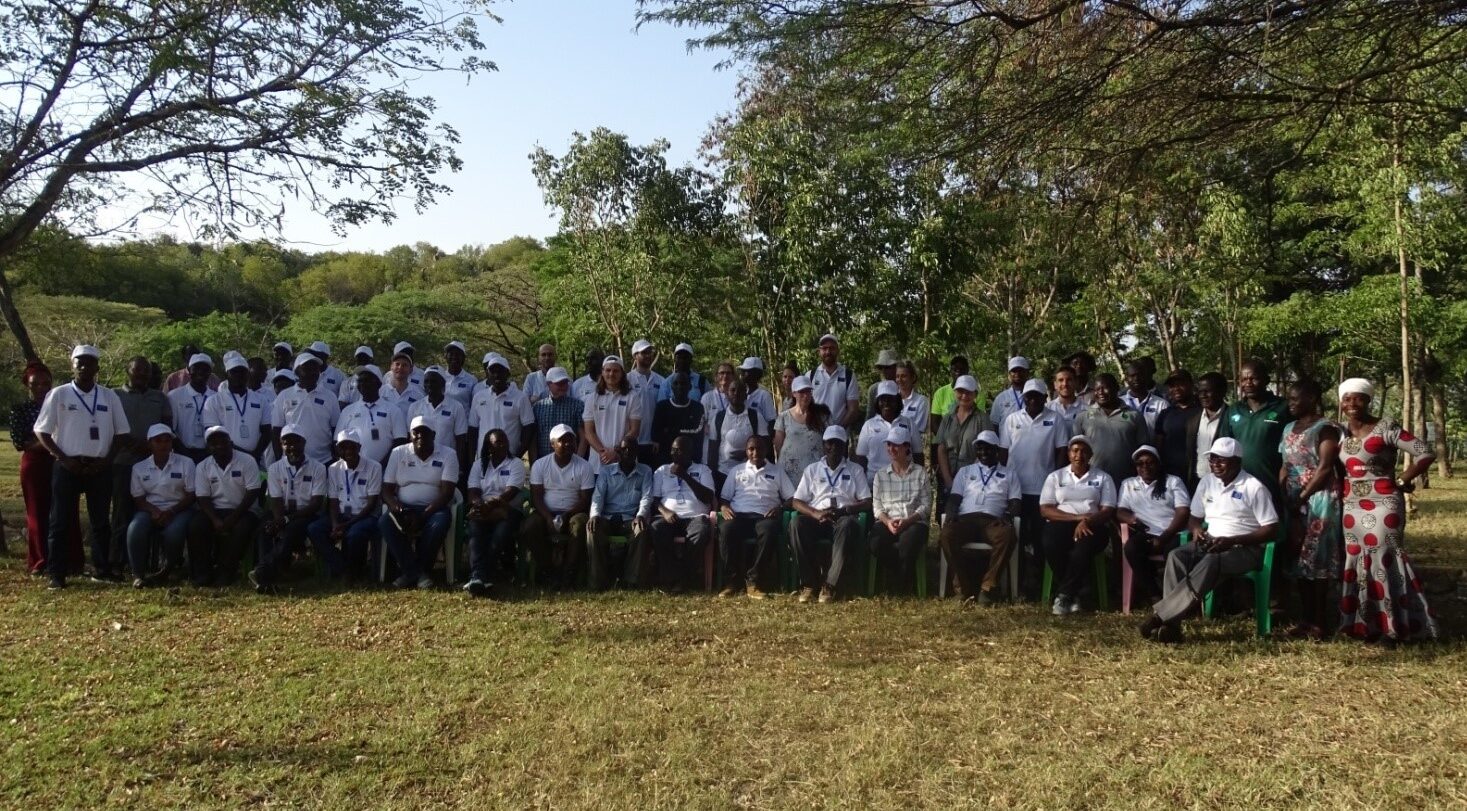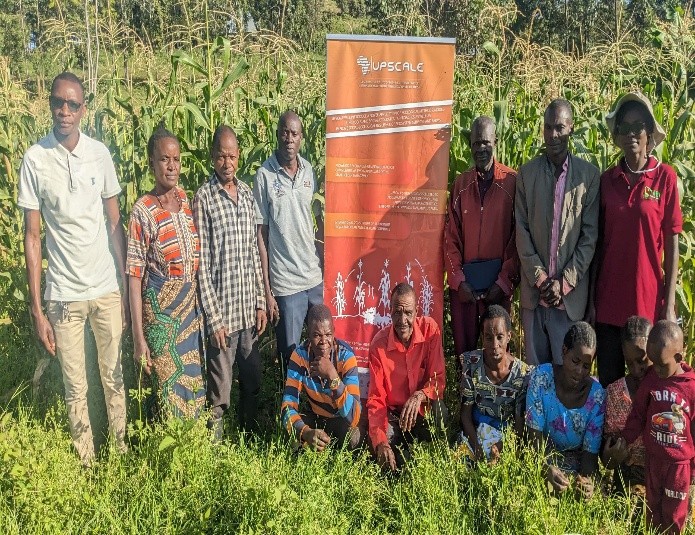Name of the event: The second General Assembly of the UPSCALE project
Date: The meeting took place from the 13th to the 15th of February 2023
Venue: The meeting was organized by the Tanzania Agricultural Research Institute (TARI)-Tanzania. It was held in at Malaika Beach Resort, Mwanza, Tanzania.
The general assembly was an opportunity for partners to discuss the progress that has been made in the project so far, as well as the challenges that remain. The meeting also served as a forum for partners to share their experiences and learn from each other.
Development of a climate-smart push-pull technology and urgent need for quality seeds and other inputs
The Push-Pull technology is a natural pest control method that uses intercropping to attract beneficial insects and repel pests. It has been shown to be effective in reducing the use of pesticides and increasing crop yields. During the project, all participants agreed that one of the key achievements of the project was the development of climate-smart Push-Pull technology. With the spread of knowledge and experience, the project has already included 10,000 farmers in Kenya who are using PPT.
However, the project still faces some challenges. One challenge is the lack of access to quality seeds and other inputs. The quality of seeds is considered an important factor in increasing yield. The use of quality seeds helps greatly in higher production per unit area to attain food security in the country. Also, it ensures good germination, rapid emergence, and vigorous growth. Quality seeds have the ability for efficient utilization of inputs such as fertilizers and irrigation.
Despite these challenges, the UPSCALE project is making significant progress in promoting the use of climate-smart push-pull technology in East Africa. The general assembly was an important opportunity for partners to discuss the way forward and ensure that the project continues to be successful.
Push-Pull Technology in the Act – Field excursions to three districts in Tanzania
The General Assembly also included a field excursion. The field excursion, supported by TARI staff and the UPSCALE project team, allowed participants to see how Push-Pull technology is directly on the field and the opportunity to discuss with farmers about various agricultural themes. The visit comprised GA participants, farmers, government officials including extension agents and policymakers who can give their contributions during and after the project ends.
The visit started at Nyakabindi agri-technology hub in Simiyu region, then Bunda district in Mara region and lastly the visit ended in Musoma at the Agriculture and Agroforestry training centre which is owned by the Africa Inland Church-Tanzania (AICT) where Push pull training fields are also established.
The Nyakabindi agri-technology hub in Simiyu region
The agri-tech hub is in the Simiyu region, and it is used as a learning site for farmers and other stakeholders. Striga control, stemborer, and fall armyworm along with soil fertility improvement and animal fodder are one of the most interesting subjects to learn for local farmers.
Visitors had the opportunity to meet Isabella Mrema, the resident officer at Nyakabindi Agri-hub. As host, she introduced the benefits of Push-Pull technology, highlighting the most important – using PPT as a fundamental technology for combating various maize production constraints which are encountered by farmers in the area.
In this area, farmers started practising the Push-Pull technology in 2021 and currently, more than 5,000 farmers and other stakeholders have visited the hub and learnt many aspects of PPT.
This is not the final number as she said. Many farmers from this and nearby regions are learning about PPT, while others already prepared the land for the next PPT season.
Second field visit in Bunda district – Mara region
After visiting Nyakabindi Agri-Hub, a delegation of GA participants visited Robert Musa and his family’s PPT farm in one of the villages in the Bunda district.
With the traditional method of maize production, Robert Musa said that he was not satisfied and that he was not producing enough food for his family and animals. The farmer afterwards explained that initially, he was getting the bare minimum of maize production unlike now, where he managed to get two bags of 100kgs each last year in a small area.
Robert Musa was faced daily with hard weather conditions and with pests who were damaging the crops. After he learned about PPT, he started using companion plants (brachiaria and desmodium) to feed his livestock, including cows and goats. Practicing Push-Pull technology, Robert reduced the use of pesticides which are expensive and hazardous to human health.
Lastly, he thanked the UPSCALE project for its efforts and wished all the visitors to embrace the Push-Pull technology and incorporate it into their farms.

Field visit at the Africa Inland Church-Tanzania (AICT), Agriculture and Agroforestry training center in Musoma – Mara region
Last but not least, GA participants had an opportunity to attend at the premises of another Agri-training centre in Musoma, which is also engaged in training and upscaling agroforestry.
The center manager Davis Dominic explained how farmers are collaborating with the centre, how they get Push-Pull training and the level of Push-Pull adoption by farmers in nearby villages and their mandate areas of work.
Local farmers also gave their testimony on the PPT benefits and expressed the wish for the rest of the farmers who are not included in the UPSCALE project, to join and learn more about increased production and its outcomes.
James Magori, a farmer from the Butiama district who is also implementing the Push-Pull technology represented some of the farmers by saying:
”We have been farming using other technologies that are not environmentally friendly, but PPT farming has given us many advantages. I would outline the biggest ones such as that PPT reduces dryness of plants especially maize (maintains moisture) and that PPT reduce soil erosion in the farm (desmodium is used as cover crops).”

Farmer from Butiama district, Kibubwa village Mwajuma Shaban giving her testimony
Another farmer from the Butiama district, from Kibubwa village – Mwajuma Shaban gave her testimony.
She started implementing PPT in 2015, after various maize production constraints, bad weather conditions and an invasive pest Fall armyworm who were damaging the crop. In the years ahead, she started a collaboration with TARI Ukiriguru on the implementation of PPT. According to her observation, the fields are cleaner and pests do not attack maize as it was before implementing the PPT.
Mwajuma has noted that the insects especially stemborer and Fall armyworm do not prefer the smell of desmodium plants especially desmodium green leaf and silver leaf. When they enter into the field they tend to come out of maize field (escape from maize field).
Interesting data is since she started getting involved in PPT farming she has been harvesting 24-26 bags per acre instead of 2 bags/acre which she was getting before engaging in PPT (1 bag=100kgs).
“Using the Push-Pull technology, I can provide higher income for my family, and I can educate my children.”
What have we learned and where we are going?
Even though the Push-pull technology is a promising method for controlling pests and increasing crop yields, there is still a need to increase the number of farmers who are aware of and using this technology. This can be done through a variety of methods, including:
- Awareness creation,
- Demonstrations,
- Agriculture shows (field days),
- Establishment of new PPT plots.
By using these methods, we can increase the number of farmers who are using push-pull technology and help to improve food security in East Africa.
Also, one of the main concerns and the overall conclusion is that most of the farmers were concerned with desmodium seed availability. There is an urgent need for seed availability so all the farmers can use it on their farms. As soon as TARI link and organize the production of Quality Declared Seed (QDS), it will reduce seed unavailability.
The UPSCALE project is a valuable example of how international cooperation can be used to address the challenges of food security and climate change. By working with farmers in East Africa, the project is helping to ensure that future generations have access to safe and nutritious food.



